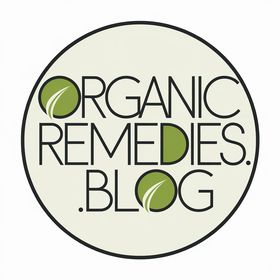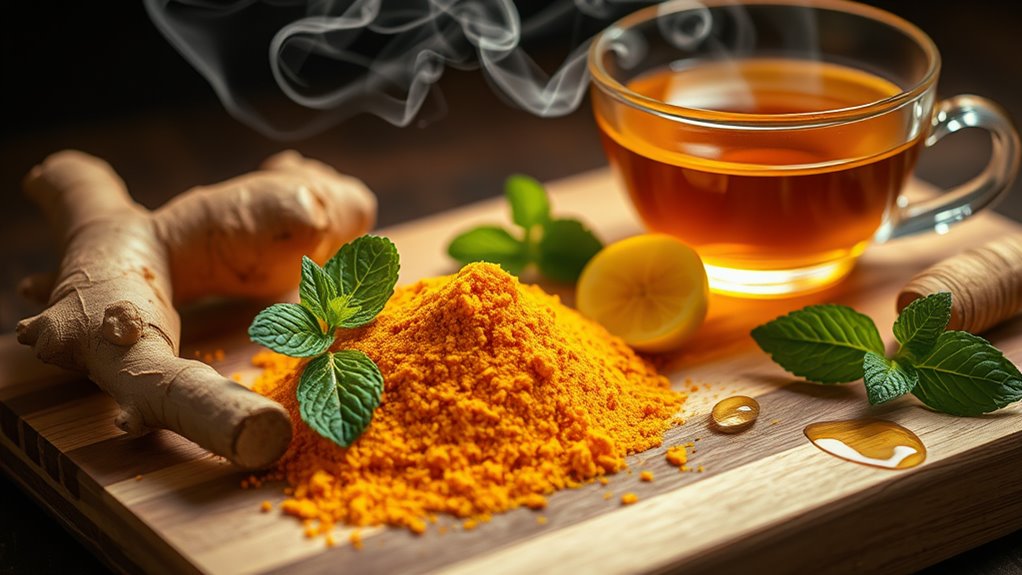This Simple Herbal Syrup Made My Cough Disappear
Understanding the Common Cough
Coughing is your body’s way of clearing irritants from your throat and airways, but it can also signal something more.
Understanding the cause is crucial to finding relief. You might consider creating a DIY cough syrup tailored to your symptoms. Natural ingredients can soothe irritation and promote healing, allowing your body to regain balance and comfort without relying solely on medications. Additionally, natural remedies can provide quick relief to persistent coughs, making them a valuable addition to your home treatment options.
Key Ingredients for the Herbal Syrup
When crafting your herbal syrup for cough, you’ll want to focus on powerful plant extracts that support your body’s natural healing process. Don’t forget the benefits of natural sweeteners, which can enhance flavor and soothe your throat. Finally, consider incorporating supporting ingredients that complement the primary extracts for a well-rounded remedy tailored just for you. For added effectiveness, select ingredients that are science-backed natural treatments known for their cough-relief properties.
Powerful Plant Extracts
To soothe a persistent cough effectively, you’ll find that powerful plant extracts serve as the cornerstone of any herbal syrup.
Ingredients like marshmallow root and thyme create a harmonious blend that calms your throat and boosts your immune system.
Personalize your syrup by experimenting with these natural remedies, tailoring them to your unique needs for optimal relief and well-being.
Natural Sweeteners Benefits
While you might not think of sweeteners as pivotal in herbal syrups, they play a crucial role in enhancing both flavor and therapeutic effectiveness. Natural sweeteners not only improve taste but also provide unique health benefits. Choosing the right one can personalize your syrup to suit your needs.
| Sweetener | Benefits | Flavor Profile |
|---|---|---|
| Honey | Antibacterial | Floral and sweet |
| Maple Syrup | Rich in minerals | Earthy and sweet |
| Agave Nectar | Low glycemic index | Mild and syrupy |
| Stevia | Zero calories | Sweet and herbal |
| Coconut Sugar | Nutrient-rich | Caramel-like flavor |
Supporting Ingredients Overview
Crafting an effective herbal syrup requires a thoughtful selection of key ingredients that work synergistically to support your body’s natural healing.
You’ll want to include soothing herbs like thyme and marshmallow root, known for their calming properties. Honey not only enhances taste but also adds antibacterial benefits.
Each ingredient plays a vital role, creating a personalized remedy tailored to your needs. Embrace nature’s wisdom for recovery!
Step-by-Step Recipe for the Syrup
Gathering the right ingredients for your herbal syrup isn’t just about creating a remedy; it’s also a way to connect with nature and nurture your body. Here’s a simple recipe:
| Ingredient | Quantity |
|---|---|
| Honey | 1 cup |
| Fresh Ginger | 2 tbsp |
| Lemon Juice | 2 tbsp |
| Thyme | 1 tbsp |
Combine these elements, and you’re on your way to relief! Using these ingredients is effective because they each play a part in soothing the throat and boosting the immune system.
How to Use the Herbal Syrup Effectively
To use your herbal syrup effectively, pay attention to the recommended dosage for your specific needs. Timing is key, so consider taking it at moments when your cough is most bothersome. Incorporating black pepper extract into your syrup can enhance its natural cough-suppressing properties.
Dosage Recommendations
Finding the right dosage for your herbal syrup can significantly enhance its effectiveness in soothing your cough. Start with a conservative amount and adjust based on your needs. Here’s a basic guide to get you started:
| Age Group | Suggested Dosage | Frequency |
|---|---|---|
| Children (2-6) | 1 tsp (5ml) | Every 4-6 hours |
| Ages 7-12 | 2 tsp (10ml) | Every 4-6 hours |
| Adults | 1 tbsp (15ml) | Every 6-8 hours |
Timing for Consumption
When you’re looking to maximize the benefits of your herbal syrup, the timing of your doses plays a crucial role in effectiveness.
Take your syrup just before meals to enhance absorption and digestion, or before bedtime for soothing relief throughout the night.
Listening to your body’s cues is key; adjust your timing based on when your cough feels most bothersome for personalized relief.
Additional Tips for a Quicker Recovery
Although a herbal syrup can soothe your cough, incorporating a few additional lifestyle practices can speed up your recovery. Stay hydrated, rest adequately, and consider using a humidifier for better air quality. Studies suggest that effective home remedies can play a significant role in alleviating symptoms. Here’s a quick reference for natural remedies:
| Hydration | Rest | Humidity |
|---|---|---|
| Drink herbal teas. | Sleep at least 8 hours. | Use a cool-mist humidifier. |
| Increase water intake. | Take short naps. | Add essential oils. |
| Enjoy warm broths. | Meditate to relax. | Keep room temperature comfy. |
Personal Experience and Results
Incorporating herbal syrup into your routine can be just one part of a holistic approach to managing your cough.
You might find that the soothing effects of natural ingredients, paired with adequate rest and hydration, create a powerful synergy.
Your body can respond positively to these gentle remedies, allowing for a faster recovery while nurturing your overall well-being and helping you feel revitalized.





